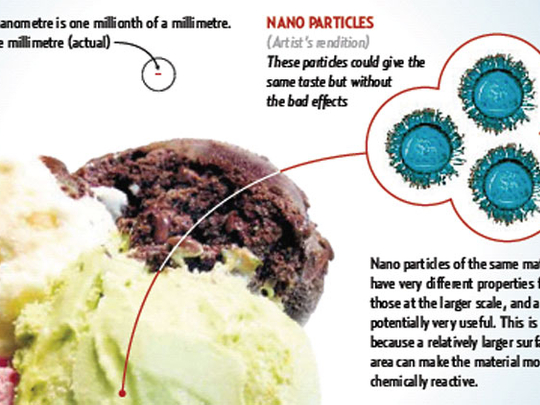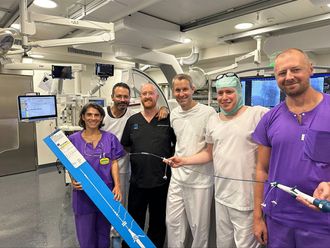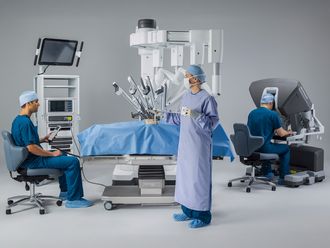
Abu Dhabi: Are you sacrificing your favourite food to avoid fat and sugar which causes obesity or diabetes?
In future you will be able to eat whatever you want without fear — thanks to nanotechnology. The technology will be able to help cut the fat and sugar content in food without compromising the taste, a top official told Gulf News on Wednesday.
"The nanotechnology will address food-based obesity", said Dr Abdul Latif Eldaw Yousuf, manager of the Specialised Food Inspection Section at Abu Dhabi Food Control Authority (ADFCA).
His remarks were especially relevant in the wake of a recent World Health Organisation (WHO) report which said cases of obesity and diabetes are growing among Emiratis.
"High incomes and a taste for fast food and sugary drinks have pushed nationals of the UAE into the obesity club", said a recent WHO report.
Yousuf spoke to Gulf News on the sidelines of a seminar at ADFCA on the applications of nanotechnology in agriculture and food sectors. He was also a speaker at the seminar.
"For example, if you are very fond of ice cream, you don't need to worry about the fat and sugar content which causes obesity", he said. "Ice cream can be made with nanomaterials [made by nanotechnology] which will reduce the quantity or content of sugar and cream without affecting the taste."
It means you can enjoy the same taste provided by sugar and cream as their content will be much lower in the food, Yousuf said. He said he could not predict a time frame for the development of such foods as research in this regard is progressing in several parts of the world. He was not aware of similar research in the UAE, but said: "The Masdar Institute of Science and Technology (MIST) in Abu Dhabi is conducting research in nanotechnology".
An assistant professor at MIST told Gulf News that MIST's research in nanotechnology is concentrated in the application of renewable energy at the moment.
"In future it will be expanded to more areas but the application of nanotechnology is very wide and it is not practical to concentrate in each and every sector", said Amal A. Al Gaferi who was also a speaker at the seminar.
In 2000, the WHO reported 13.5 per cent of the UAE population was diabetic, the second-highest prevalence of the disease in the world; this figure is expected to rise to 19.3 per cent by 2030. The report also said over 50 per cent of men and women in the UAE were overweight or obese.
UAE will need 500,000 skilled workers
The UAE is expected to require 500,000 skilled workers in nanotechnology and their education and training will be a challenge for the country, said an expert.
"In the next 15 years, the world will require many skilled workers in nanotechnology, including researchers, lab technicians and regulators," Dr Amal Al Gaferi, a faculty member at MIST in Abu Dhabi said at the seminar at ADFCA.
"In the UAE, we should focus on training our workers to take up these challenges, because we hope to soon use nanotechnology for data storage, food production and health care", she said.
Number of skilled workers in technology required by 2020
- Worldwide: more than 2,000,000
- United States: 800,000
- UAE (expected): 500,000











